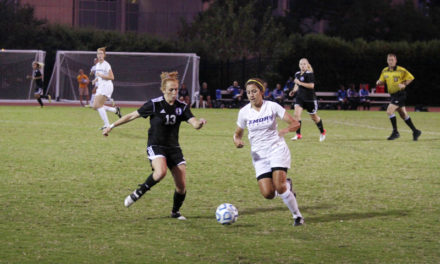Apparently, Russians take hockey very seriously.
The host country came in to the Olympics with high expectations for their squad (at least, your hockey-loving On Fire correspondent is assuming as much based on what follows).
The Russians were eliminated from medal contention Wednesday, losing to Finland 3-1.
After the game, head coach Zinetula Bilyaletdinov spoke with the press.
Q: Mr. Bilyaletdinov, in what way exactly, do you see yourself at fault for what happened?
A: I’m at fault for everything. I didn’t fulfill the task before me.
Q: What future, if any, do you see for your own work and for your coaching staff? Because, you know, your predecessor was eaten alive after the Olympics–
A: Well then, eat me alive right now–
Q: No, I mean–
A: Eat me, and I won’t be here anymore.
Q: But we have the world championship coming up!
A: Well then, there will be a different coach because I won’t exist any more, since you will have eaten me.
Q: But you’re staying, aren’t you?
A: Yes, I will remain living.
There is a lot that can and should be said about this incredible exchange. But one questions stands out above all others.
What the hell happened to the old Russian hockey coach?!?!
Seriously, this is an urgent, pressing, major, important question. Yet no one seems to be asking it. Why was this poor man eaten alive?
No one else in the media is asking this question. Your confused On Fire correspondent has read numerous articles on this subject while doing his (or her) background research, from publications such as the Wall Street Journal, USA Today, Yahoo! Sports, CBS Sports and Totalfratmove.com, and no one explained why the previous Russian hockey coach was eaten alive.
No one has even bothered to ask the question! This matter seems to bother no one besides your conscientious On Fire correspondent. What happened to the old Russian hockey coach?
A Google search with the terms “Why was the old Russian hockey coach eaten alive?” brings up 36,400,000 results, and none of them explain the fate of this poor man (at least, none of the results on the first two pages).
Why the apathy? Your concerned On Fire correspondent cannot even discover the name of this digested man.
Someone needs to do some research on this matter and ascertain exactly the fate of Russia’s previous hockey coach. And while they are at it, they should look into the fate of coaches past – have these men been eaten too?
Russia is a crazy place.
Although, who are we to judge? All of us here at On Fire applaud Mr. Bilyaletdinov (say that five times fast) for his calm acceptance of his fate.
Imagine the strength, the confidence, the quiet dignity it takes to say, “Eat me alive right now.”
The philosopher Friedrich Nietzsche once wrote, “My formula for greatness in a human being is amor fati: that one wants nothing to be different, not forward, not backward, not in all eternity. Not merely bear what is necessary, still less conceal it, but love it.”
There is no man to whom this statement applies better to than Mr. Bilyaletdinov.
He loves his fate. He literally cannot wait to be eaten alive. He is not just bearing his fate, he is not concealing his fate – he is grabbing the bull by the horns, diving into the snake pit and getting eaten alive.
How can we tell this? Mr Bilyaletdinov says so himself. “Eat me, and I won’t be here anymore.”
This is not just a statement. This is a threat. He is challenging the Russian journalist to eat him.
But, if this journalists steps up to the challenge, Mr. Bilyaletdinov wants him to be aware of the consequences of his actions.
“I won’t exist anymore, since you will have eaten me.”
But, he clarifies, “Yes, I will remain among the living.”
Upon reading this last line of Mr. Bilyaletdinov’s interview, your still-confused On Fire correspondent is beginning to think that “eaten alive” is more of a figure of speech.
Still, we would like to see the previous coach, alive and uneaten, to confirm this new hypothesis.
The Emory Wheel was founded in 1919 and is currently the only independent, student-run newspaper of Emory University. The Wheel publishes weekly on Wednesdays during the academic year, except during University holidays and scheduled publication intermissions.
The Wheel is financially and editorially independent from the University. All of its content is generated by the Wheel’s more than 100 student staff members and contributing writers, and its printing costs are covered by profits from self-generated advertising sales.






